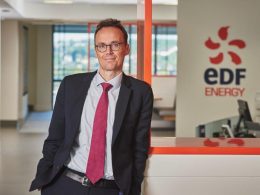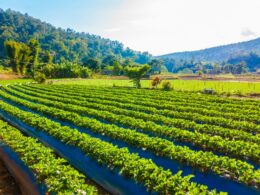A coalition of leading green building organisations has released a new report calling for expanded sustainable finance to bring the majority of buildings up to modern sustainability standards. The report, titled “Building Transition: How to Scale and Finance an Inclusive Transition for the Built Environment,” the report emphasises the need to support the 75% of buildings that have yet to implement green practices. The initiative is led by the UK’s Building Research Establishment (BRE), the Green Building Council of Australia (GBCA), the Singapore Green Building Council (SGBC), the US Green Building Council (USGBC), and Alliance HQE-GBC France.
The coalition’s report calls for targeted financial and policy reforms to enable decarbonisation across all building types, not just among high-performing, elite structures. It highlights the importance of unlocking investment for lower-performing buildings, ensuring that sustainability upgrades reach a broader array of properties. Additionally, the report advocates for establishing global decarbonisation standards to create a unified approach across various regions and asset types, while still allowing for local adaptations. Through these standards, the coalition aims to establish a pathway for scalable decarbonisation across the global building sector.
A significant focus of the report is on the need for resilience in real estate finance, particularly for buildings at greater risk from climate-related events. The coalition emphasises that resilience measures are rarely integrated into real estate finance today, leaving many properties vulnerable to both immediate and long-term climate impacts. The report suggests that incorporating resilience into financial planning could prevent these lower-performing buildings from becoming stranded assets.
Building on prior research, including the “Financing Transformation: A Guide to Green Building for Green Bonds and Green Loans,” the new report broadens the conversation by advocating for inclusive financing that enables more building owners to access funds for necessary upgrades. While certifications like LEED, BREEAM, Green Star, Green Mark, and HQE have set benchmarks for sustainable investment, the latest report seeks to make these standards more widely accessible across the building market.
“Bridging the gap between high-performing and underperforming buildings is essential to achieving our global decarbonisation goals. This report underlines the importance of inclusive investment strategies that unlock capital for the majority of buildings, ensuring that no part of the built environment is left behind. At BRE, we believe that scalable, context-specific solutions—backed by robust data, strong policies, and global standards—are key to transforming the built environment and meeting the urgent challenges of climate change,” said Jane Goddard, deputy CEO of BRE.
Yvonne Soh, CEO of the Singapore Green Building Council, commented, “Singapore has set a goal to green 80% of our buildings by 2030. This report is a reflection of our decarbonisation journey and offers insights into driving and scaling up market innovation. Partnerships are key to unlocking the potential of sustainable finance, and we look forward to working with all stakeholders to harness sustainable finance to transform our built environment.”
Peter Templeton, President and CEO of the U.S. Green Building Council, stated, “Achieving large-scale decarbonisation is only possible with widespread adoption of green building practices. Every building needs a decarbonisation plan to help meet emissions reduction goals to mitigate climate change. However, making improvements to the vast stock of existing buildings requires access to capital. ‘Building Transition’ underscores the importance of uniting key stakeholders such as investors and policymakers to create more opportunities for building owners to act.”
Davina Rooney, CEO of the Green Building Council of Australia, added, “Achieving deep decarbonisation across the building sector means leaving no stone unturned—from iconic CBD towers to suburban homes and everything in between. We must ensure green finance is accessible to all, especially those properties yet to benefit from sustainable investment. This report lays out a clear path to bring sustainable finance into the hands of more building owners, empowering them to accelerate change to climate goals.”





















